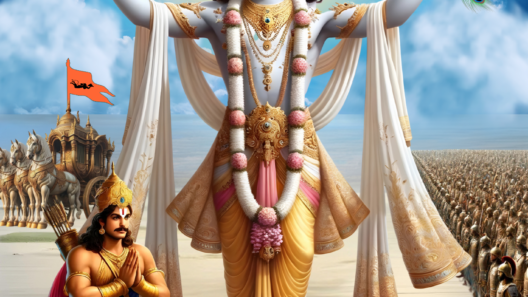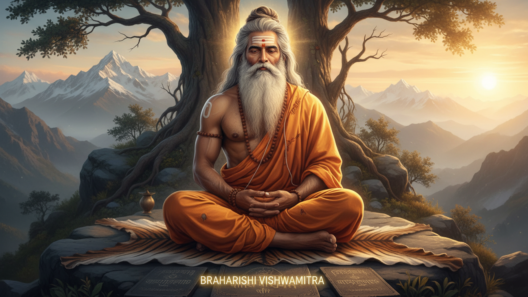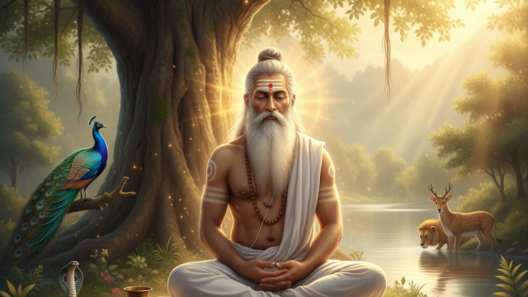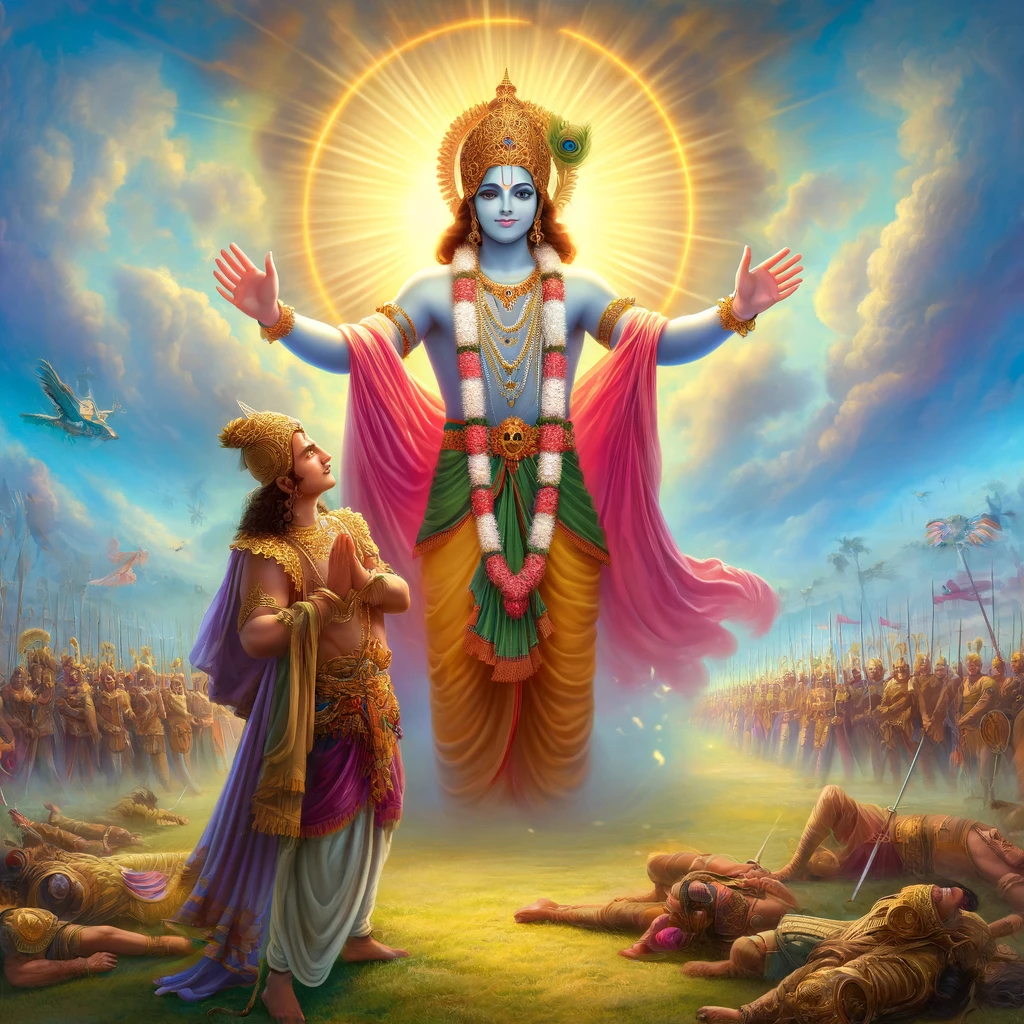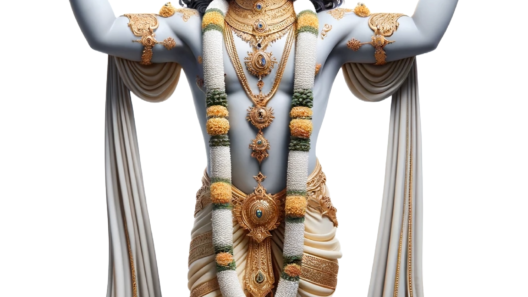Bhagavad Gita Continued:
Nishkama Karma: Does it Mean Working Without a Purpose?
Stanza 28:
व्यवसायात्मिका बुद्धिरेकेह कुरुनंदन ।
बहुशाखा ह्यनंताश्च बुद्धयोऽव्यवसायिनाम् ॥
Action done without attachment of desire to it or behind it, will be one pointed (consistent i.e. without oscillation or deviation). When desires are attached to it , actions suffer from wavering (inconsistency).
[Bhagavad-Gita is a practical spiritual philosophy mainly focussing on the RIGHT ACTION (purity of action) which does not result in REACTION (binding the action doer in the law of karma). The entire counselling of Arjuna by Lord Krishna is to remove the fear of Arjuna that he was doing wrong action by killing his own kith and kin for the sake of fulfilling his and his brothers desire to get back their rightful share in the kingdom. He was overcome by the sense of guilt , compassion, and confusion whether to fight the war or not. Therefore, it became necessary for Lord Krishna to teach the secret of RIGHT ACTION to Arjuna to dispel his apprehension. In the coming stanzas time and again there is reference to doing action without desire or free from desires (Nishkaama karma)].
It is usually interpreted that actions have to be done without any desires what so ever. If so the actions done without any purpose, becomes direction less and meaningless.
A worker after doing his work honestly, expecting his salary cannot be termed as action with desire. Unless he gets his salary he cannot fulfil his duties towards his family and himself. Action done rightly for the fulfilment of livelihood cannot be termed as action with desire.
Similarly a business man rightly doing his business and expecting profits to fulfil his requirements and that of his family, cannot be said as action with desire. In the above two aspects as examples, the only thing for consideration is whether there is RIGHT action or purity of action in earning their livelihood (to avoid reaction from the law of karma).
Lord Krishna’s philosophy of right action means actions done to fulfill righteous desires or to fulfill the righteous duties that are allotted or accepted i.e. desires in accordance with Dharma (righteousness). Action done to put down unrighteousness is also right action.
This is the theme of the counselling given to Arjuna to fight the Mahabharata war (which is primarily for the purpose of putting down unrighteousness and for the fulfilment of righteous desires of Pandavas to get back their share of kingdom which was deprived to them by Dhuryodhana by deceit).
Therefore , RIGHT ACTION means action done for the purpose of fulfilment of such desires which are in accordance with DHARMA either for the good of the individual, society or for the world. If Arjuna’s action of fighting the war has no purpose for him, then his actions become meaningless and direction less.
Action done for the good and righteous purpose but with some greed behind it is an imperfect action. Like doing good for the sake of name, fame or even for earning the divine grace.
Therefore, wherever and whenever references come in the future stanzas with regard to action without desire, simply means action without any greed, bad intention, deceit and unrighteousness, and totally for righteous purpose.
Action without desire should be further understood as or construed as action done in accordance with Dharma devoid of greed, anger, selfishness, arrogance ( egoism ), infatuation and jealous ( six negative traits ). Therefore, in this practical world one should try to do actions righteously as far as possible to reduce karmic load.]
Stanza 29:
कर्मण्येवाधिकारस्ते मा फलेषु कदाचन ।
मा कर्मफलहेतुर्भूर्मा ते संगोऽस्त्वकर्मणि ॥
Arjuna, you have got control over your actions (planning and execution), but not on the results of such actions. If you are more focussed on the results of your actions (anxious of the results), then actions will suffer from imperfection, and in turn the results. At the same time do not develop the attitude of non action (not to do your duty fearing the karma). [In other words one has got control on doing the action with application, dedication and discipline (to the best of one’s ability) but not on the result of it].
How to Attain the Even State of Mind (Yoga)
Stanza 30:
योगस्थः कुरु कर्माणि संगं त्यक्त्वा धनंजय ।
सिद्ध्यसिद्ध्योः समो भूत्वा समत्वं योग उच्यते॥
Stanza 31:
दूरेण ह्यवरं कर्म बुद्धियोगाद्धनंजय ।
बुद्धौ शरणमन्विच्छ कृपणाः फलहेतवः ॥
Actions done with the desires for the results only, is always of lesser order (imperfect action because, for the sake of results one may take to deviant paths) meaning it binds the person who is doing the action in Karma (action and reaction phenomena). Therefore, be intelligent enough to do action with the EVEN state of mind ( not worrying about success or failure.
Stanza 32:
बुद्धियुक्तो जहातीह उभे सुकृतदुष्क्रते ।
तस्माद्योगाय यज्यस्वयोगः कर्मसु कौशलम् ॥
A person who does action with the EVEN state of mind will leave back the good and bad results of such actions in this world itself. He will be freed from the bondage of karma. Therefore, you prefer to do action in this yogic state of mind (EVEN state).
Stanza 33:
कर्मजं बुद्धियुक्ता हि फलं त्यक्त्वा मनीषिणः ।
जन्मबन्धविनिर्मुक्ताः पदं गच्छन्त्यनामयम् ॥
People of knowledge who does action with this EVEN state of mind will alone have the ability to renounce the fruits of their action and free themselves from the bondage of action (karma) and attain the highest state ( salvation).
Stanza 34:
श्रुतिविप्रतिपन्ना ते यदा स्थास्यति निश्चला ।
समाधावचला बुद्धिस्तदा योगमवाप्स्यसि ॥
When your mind is constantly focussed on the Supreme BEING (through Meditation) and not swayed away by the affairs of the world, you will develop this state of Yoga (EVEN state of mind).
Stanza 35:
यदा संहरते चायं कूर्मोऽगांनीव सर्वशः ।
इद्रिंयाणींद्रियार्थेभ्यस्तस्य प्रज्ञा प्रतिष्ठिता ॥
Just as a tortoise withdraws all its appendages and become static, when the senses focussed on the worldly affairs are withdrawn into the SELF (Individual Being), the mind becomes stable and attain’s this state of yoga.
Stanza 36 & 37 :
विषया विनिवर्तन्ते निराहारस्य देहिनः ।
रसवर्जं रसोऽप्यस्य परं दृष्ट्वानिवर्तते ॥
तानि सर्वाणि संयम्य युक्त असीत मत्परः ।
वशे हि यस्येंद्रियाणि तस्य प्रज्ञाप्रतिष्ठिता ॥
He who has established in his own SELF and attained the stability of the mind, will realise the Supreme BEING because the Individual BEING or the SELF is the connector to the Supreme BEING. This is YOGA, the Alignment. He who meditates on ME (the Supreme BEING), gradually his mind will attain this EVEN state.
The Step-by-Step Fall of a Person: Anger and Frustration
Stanza 38:
ध्यायतो विषयान्पुंसः संगस्तेषूपजायते ।
संगात्संजायते कामः कामात्क्रोधोऽभिजायते ॥
He who is strongly attached to the worldly desires will suffer from frustration when his desires are not fulfilled. Frustration in turn leads to Anger.
Stanza 39:
क्रोधाद्भवति सम्मोहः सम्मोहात्स्मृतिविभ्रमः ।
स्मृतिभ्रंशाद्बुद्धिनाशो बुद्धिनाशात्प्रणश्यति ॥
Frustration and Anger blocks the wisdom. Loss of wisdom degenerates a person.
Stanza 40:
नास्ति बुद्धिरयुक्तस्य न चायुक्तस्य भावना ।
न चाभावयतः शांतिरशांतस्य कुतः सुखम् ॥
He who has not controlled his senses will be carried away by emotions. Loss of emotional stability will deprive him peace of mind. There is no happiness without peace of mind.
The human mind is the one obstacle which stands between Individual Consciousness and Universal Consciousness.
Key Lesson: The Ladder of Self-Destruction and How Anger Blocks Your Success
"From attachment comes desire; from unfulfilled desire comes anger. From anger comes the clouding of judgment."
The 5 Stages of Inner Decline:
Attachment: Dwelling on worldly objects or specific results.
Desire: The “I must have it” urge that creates stress.
Anger: The natural reaction when desires are blocked.
Delusion: Anger “clouds” the mind, making it impossible to see the truth.
Loss of Reason: When judgment fails, the person’s character and success collapse.
The Solution: Practice Natural Meditation to withdraw the senses (like a tortoise) and maintain an EVEN state of mind, regardless of the outcome.
The Result: When you act without the “fever” of desire, your actions become perfect, and you are freed from the bondage of Karma.

